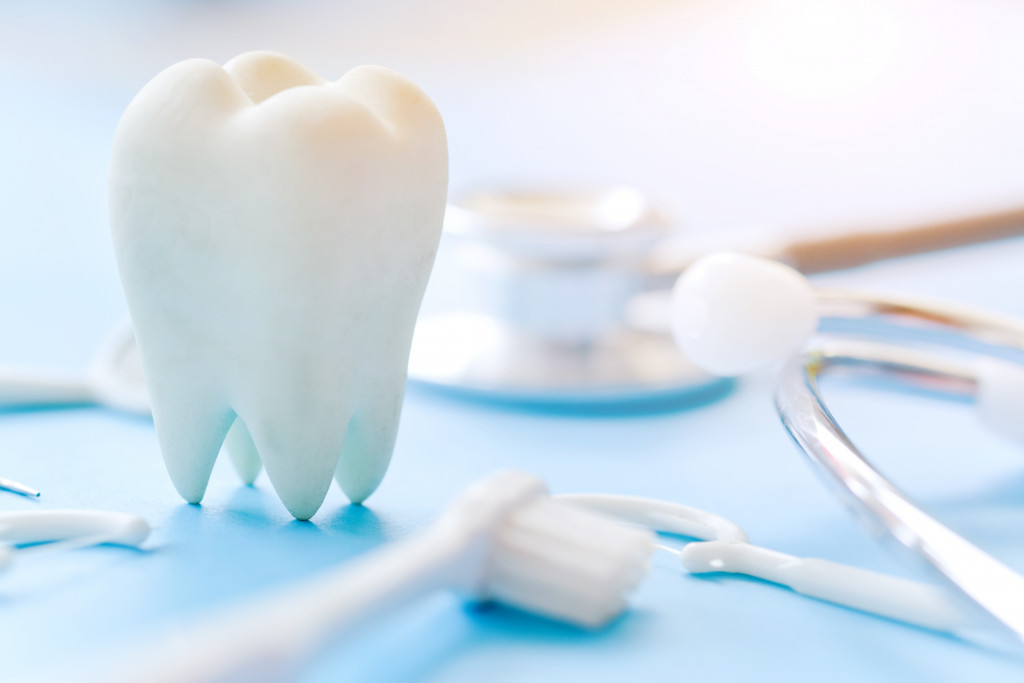A healthy smile is essential in feeling good about ourselves. It plays a crucial role in our self-confidence as it significantly contributes to our overall appearance. Most adults nowadays have halitosis, and the majority of them aren’t even aware of it. It’s a dental problem that is pretty prevalent but is practically easy to treat.
Let’s take a look at the most common dental problems and how dentists treat them.
Tooth Decay
Tooth decay is a popular term for dental cavities or dental caries. It’s the leading dental problem that most dentists see in their patients. In general, almost everyone may experience tooth decay at some point in their lives.
Dental cavities occur when bacteria form plaque on the surface of the teeth. This starts when the bacteria begin to produce acid from the sugar in food and eat away the enamel, which permanently damages the outer layer of the tooth.
Over time, it will drastically break the tooth leading to cavities and holes in the teeth. The most common signs of tooth decay are pain and sensitivity to hot and cold. Other symptoms may include:
- Bad breath
- Brown or dark spots on teeth
- A displeasing taste in the mouth
The treatment begins with a teeth assessment. Depending on the condition of your oral health, your trusted dentist may recommend a root canal, fillings, or crowns.
Periodontal Disease
Periodontal or gum disease often starts with gingivitis. This dental problem is a bacterial infection caused by plaque buildup that causes the gums to become swollen and red. It also results in bleeding of the gums. Like tooth decay, gum disease may also come with foul breath and teeth sensitivity.
Many factors can contribute to its occurrence, such as poor brushing methods or not brushing teeth at all. Some risk factors may also involve pregnancy, tobacco use, and diabetes. In most cases, periodontal disease progress unnoticeably because gingivitis (its early stage) could be painless.
Regular dental checkups are the key to preventing periodontal disease. Dentists can treat gingivitis along with proper dental care practice.
If untreated, gingivitis can result in a severe dental problem called periodontitis. With this, your gum socket will become infected, and the bone and tissue underneath will be affected as well. This may also lead to:
- Gum recession
- Losing permanent teeth
- Bite problems
- Terrible taste in the mouth
- Bad breath
Tooth Sensitivity
Teeth sensitivity can occur when the tooth enamel is worn away, exposing the dentin. The dentin contains tubes connected to the deep nerves in the tooth. You will feel sensitivity when you drink or eat hot and cold substances because these can travel along the tubes and result in pain.
But that’s not all. Tooth sensitivity, a.k.a. dentin hypersensitivity, may also happen due to tooth decay. Other possible causes may include:
- Root infection
- Gum disease
- Broken tooth
- Worn down fillings
- Receding gums
- Enamel erosion
Furthermore, you can also be sensitive to hot and cold if your teeth are naturally thin. The good news is there are several dental products specifically designed to help people with tooth sensitivity.
Bad Breath
Halitosis or commonly known as bad breath is another common dental problem. It is also one of the most distressing oral health issues. Bad breath can occur due to several reasons, such as:
- Dry mouth
- Medication
- Poor oral care
- Cancer
- Acid reflux
- Infection
Some of the food you eat may also cause halitosis, like garlic, onion, and spices. And since the causes of bad breath widely vary, speaking to your dentist would be an ideal solution to resolve this problem.
Receding Gums
Gum recession is commonly linked with other dental problems, and the worst conditions can ultimately lead to tooth loss. This happens because the tooth root gets exposed, making it vulnerable to damage. However, receding gums can occur due to the following factors:
- Harshly brushing the teeth
- High blood pressure
- Poor oral hygiene
- Changes in hormones in women
- Smoking
Genetic factors can also be a huge contributor to gum recession. If your parents have experienced this dental problem, you will most likely experience it too at some point in your life.
Broken Teeth
Broken teeth may be due to:
- Injuries
- Eating hard-to-chew food
- Teeth grinding or bruxism
- Mouth piercings
Going to the dentist is highly recommended if you have a broken tooth because it can cause you much pain. Even though the pain is tolerable and the crack is not that bad, seeing a dentist is crucial to ensure that it does not worsen. A dental health care provider can fix this problem with crowns, veneers, or fillings.
Dental problems can affect your general health, confidence, and quality of life. If you want to lower your risk of developing severe dental health issues, make sure to visit your dentist regularly, practice good oral hygiene, and get treatments if needed.

